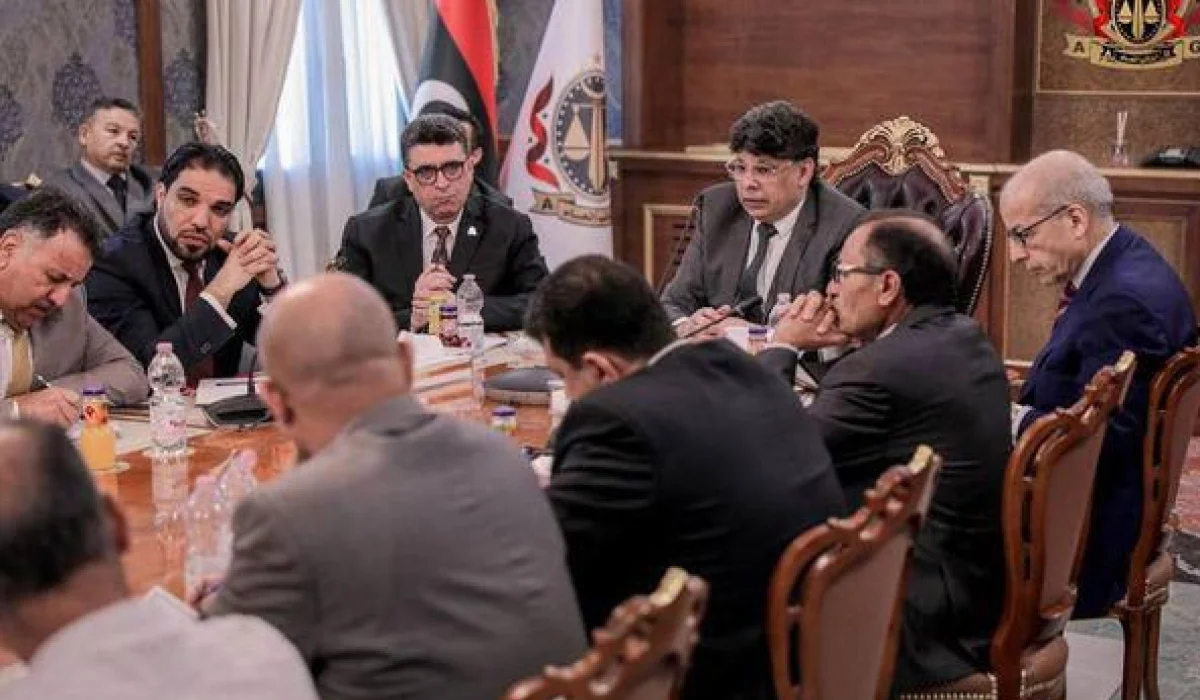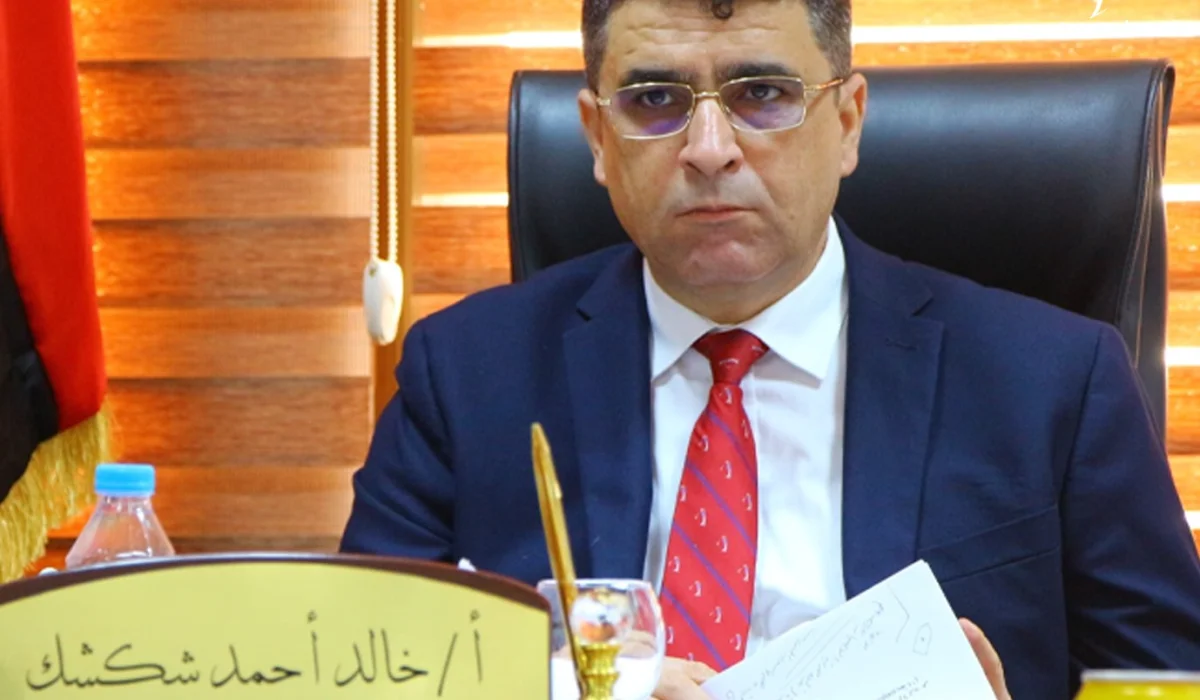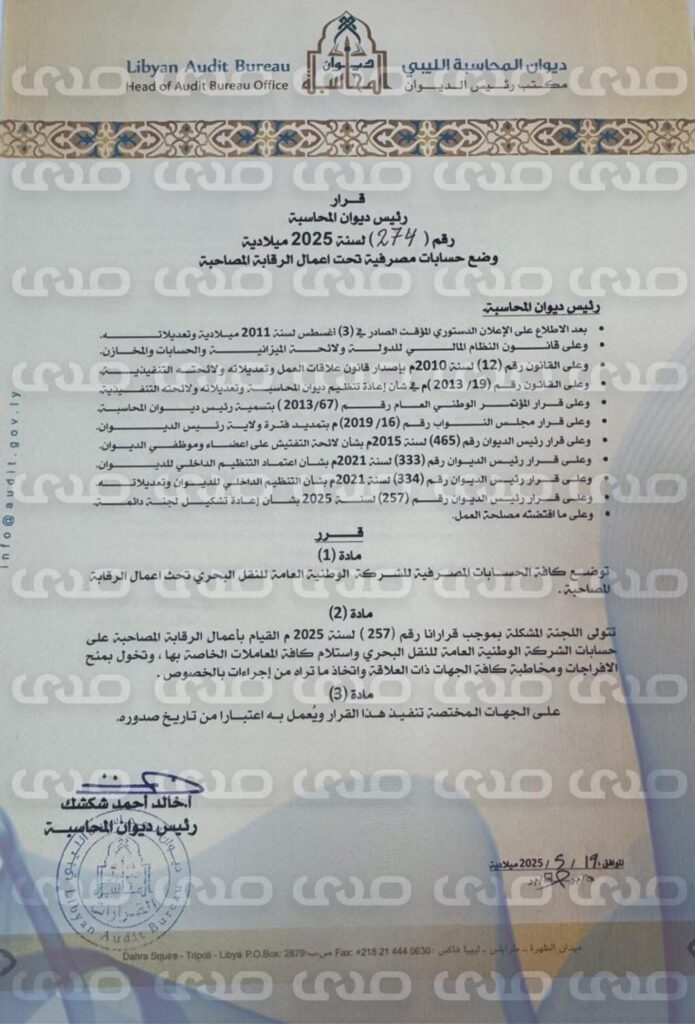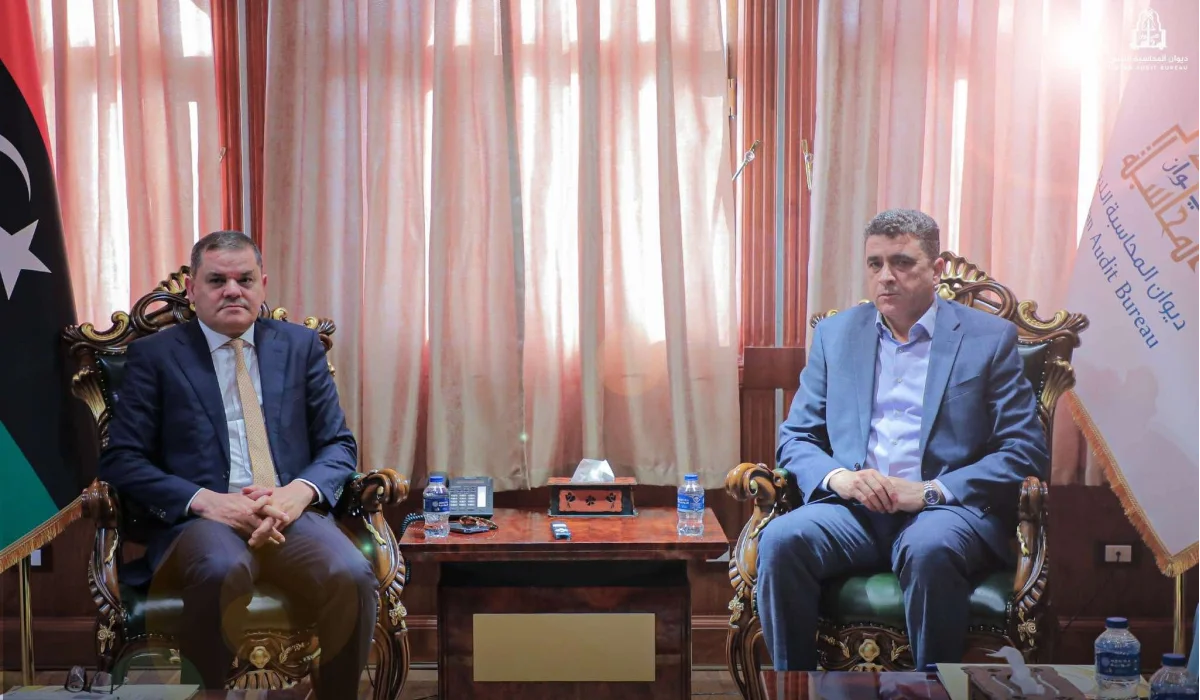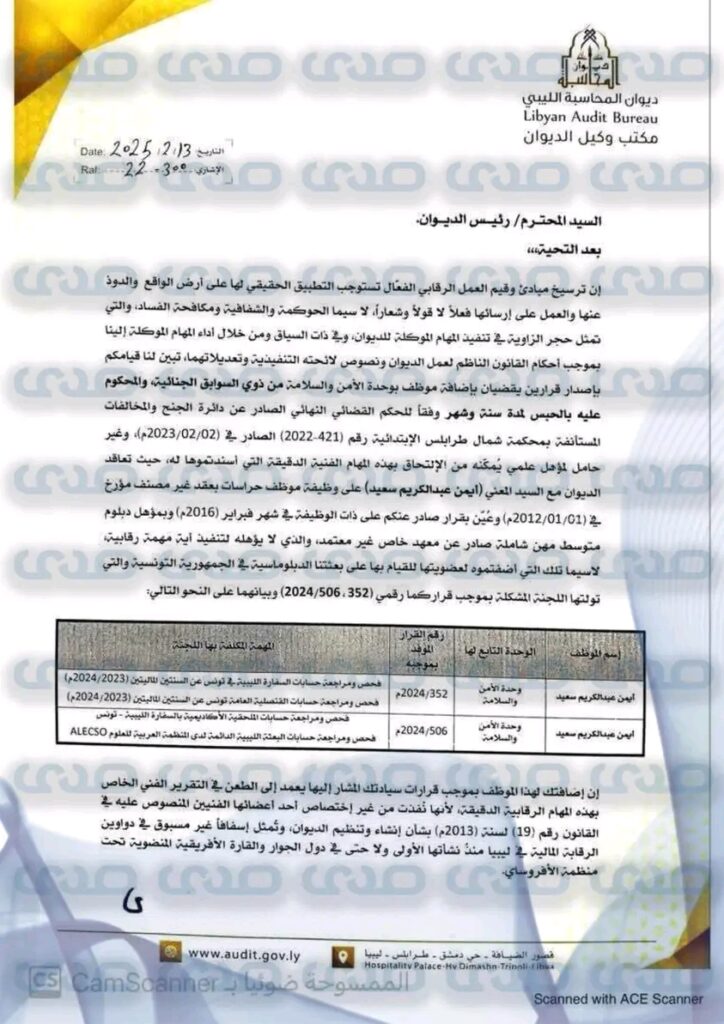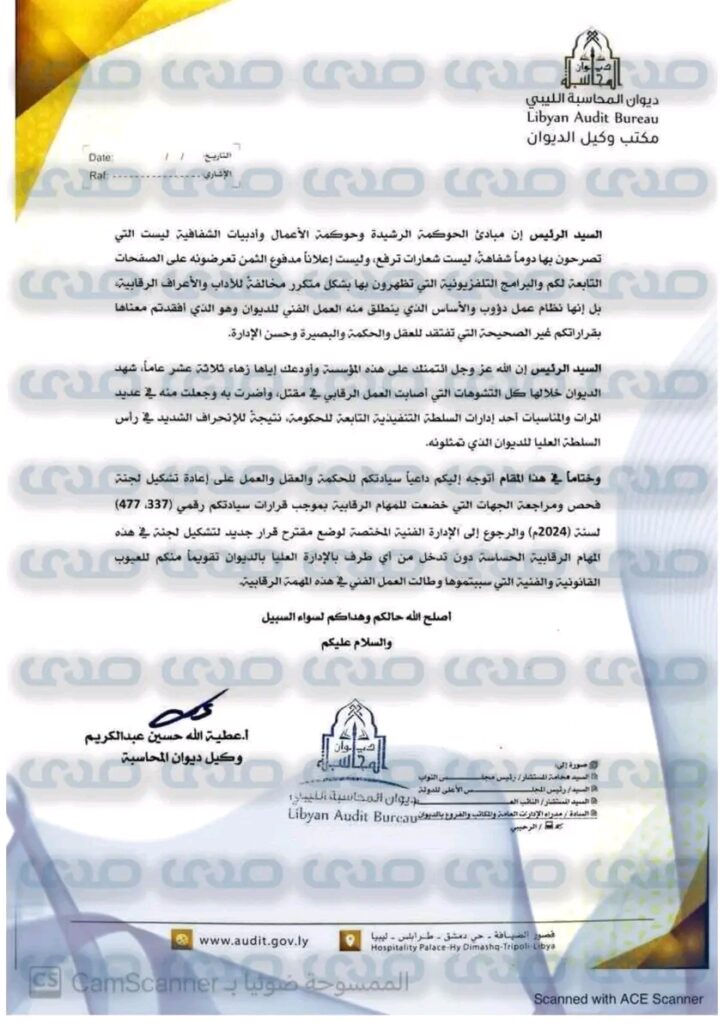Exclusive – After Being Publicly Wronged by the Audit Bureau Over Companies He Holds Shares In… Husni Bey Demands a Public Clearance Statement on the Bureau’s Page
In an exclusive interview with our source, Libyan businessman Husni Bey made a direct appeal to the President of the Audit Bureau, Khaled Shakshak, calling for justice and correction of what he described as a “grave injustice” inflicted on his companies and their directors. This came as a result of what he called a malicious decision issued by the Bureau in October 2015, accusing two companies he holds shares in — and their managers — of false allegations, including customs evasion and money laundering, claiming money transfers were made without importing goods, which he asserts was not the case.
He added:
“The decision hit like a thunderbolt. It was widely and openly announced on the Bureau’s official page and republished by media outlets. We were falsely accused, and individuals working as managers or even family members who own shares in the companies were unjustly harmed.”
He explained that the decision was issued under No. 398 on October 11, 2015, and was revoked less than three weeks later through Decision No. 431 on November 2, 2015, after it was proven that the active company in question was not affiliated with him. However, the revocation was not announced in the same public manner as the accusation, resulting in the allegation continuing to follow them in official transactions to this day.
Bey continued:
“We requested that the exoneration be announced with the same level of exposure as the accusation, but it never happened — as if the immense harm they caused is irrelevant, even though its repercussions can’t be compensated for, neither financially nor morally.”
He clarified that the error was not only in the accusation but also in misidentifying the companies involved. There was a confusion between:
- His company “Siran Pharmaceuticals”, part of his group
- And another company “Siran Tires”, which was actually involved in the alleged currency and goods smuggling — as discovered after further investigation.
He added:
“In addition to the name confusion, the issue was also a small numerical error in the customs declaration — between 3230 and 3239 — a minor discrepancy with disastrous consequences.”
He emphasized that the public defamation was triggered by a customs fee difference of only 15,000 dinars, despite 70,000 out of 85,000 dinars in dues being paid. He questioned:
“Is it reasonable to accuse a company that pays tens of millions in customs duties of evading over just 15,000 dinars?”
The businessman concluded his appeal by saying:
“I urge Mr. Khaled Shakshak and the Audit Bureau to give us justice. Our name was wrongly included among 26 companies, and 9 of our managers were accused among 97 individuals mentioned in the same decision. There may be others who were also wronged.
Despite everything, we thank the Audit Bureau for its reports that have uncovered many violations — but we still await justice… because we were wronged.”




